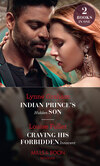Czytaj książkę: «Come The Vintage»

Mills & Boon is proud to present a fabulous collection of fantastic novels by bestselling, much loved author
ANNE MATHER
Anne has a stellar record of achievement within the
publishing industry, having written over one hundred
and sixty books, with worldwide sales of more than
forty-eight MILLION copies in multiple languages.
This amazing collection of classic stories offers a chance
for readers to recapture the pleasure Anne’s powerful,
passionate writing has given.
We are sure you will love them all!
I’ve always wanted to write—which is not to say I’ve always wanted to be a professional writer. On the contrary, for years I only wrote for my own pleasure and it wasn’t until my husband suggested sending one of my stories to a publisher that we put several publishers’ names into a hat and pulled one out. The rest, as they say, is history. And now, one hundred and sixty-two books later, I’m literally—excuse the pun—staggered by what’s happened.
I had written all through my infant and junior years and on into my teens, the stories changing from children’s adventures to torrid gypsy passions. My mother used to gather these manuscripts up from time to time, when my bedroom became too untidy, and dispose of them! In those days, I used not to finish any of the stories and Caroline, my first published novel, was the first I’d ever completed. I was newly married then and my daughter was just a baby, and it was quite a job juggling my household chores and scribbling away in exercise books every chance I got. Not very professional, as you can imagine, but that’s the way it was.
These days, I have a bit more time to devote to my work, but that first love of writing has never changed. I can’t imagine not having a current book on the typewriter—yes, it’s my husband who transcribes everything on to the computer. He’s my partner in both life and work and I depend on his good sense more than I care to admit.
We have two grown-up children, a son and a daughter, and two almost grown-up grandchildren, Abi and Ben. My e-mail address is mystic-am@msn.com and I’d be happy to hear from any of my wonderful readers.
Come the Vintage
Anne Mather
MILLS & BOON
Before you start reading, why not sign up?
Thank you for downloading this Mills & Boon book. If you want to hear about exclusive discounts, special offers and competitions, sign up to our email newsletter today!
Or simply visit
Mills & Boon emails are completely free to receive and you can unsubscribe at any time via the link in any email we send you.
Table of Contents
Cover
About the Author
Title Page
CHAPTER ONE
CHAPTER TWO
CHAPTER THREE
CHAPTER FOUR
CHAPTER FIVE
CHAPTER SIX
CHAPTER SEVEN
CHAPTER EIGHT
CHAPTER NINE
CHAPTER TEN
CHAPTER ELEVEN
Copyright
CHAPTER ONE
A FINE grey drizzle filtered down through the bare branches of the trees and dampened the shoulders of the few mourners gathered about the open grave. It was a fitting day for a funeral. Since early morning, clouds had hung low over the valley, and a chill wind brought the breath of snow from the Jurals not far away. The cemetery was erected on the hillside, above the village, and the weathered gravestones of its occupants were streaked with rain and sodden leaves. Autumn had come late to the valley, but it was here now, and Ryan shivered in spite of her warm coat and trousers.
She had her arms wrapped closely about her as if to ward off the chill which came as much from within as without. Despite the solemnity of the occasion, the brass-handled coffin lying in its six feet of earth, the sombrely clad group around her, she found it all very hard to believe. Was it possible that in the space of four short weeks her whole life could change so dramatically that she no longer recognized it as being her life?
Four weeks ago when Aunt Maggie died, her grief had been tempered by the letter her aunt had left. The letter, which had given her her father’s address and begged her to go and see him. Since Ryan’s mother had died five years before, Aunt Maggie had talked often about her father, softening the bitterness she had always felt towards him on her mother’s behalf. Aunt Maggie had tried to make her see that Pierre Ferrier had not been wholly to blame for the break-up of her parents’ marriage, there had been faults on both sides; most particularly her mother’s refusal to return with him to France.
Ryan had thought for a long time before contacting her father. It was ten years since she had seen him, and then she had been a mere child of some nine years, totally incapable of judging what manner of man he might be. But the realization that with the death of her aunt she was alone in the world had persuaded her to send him a letter advising him of her aunt’s death. His reply had been reassuringly swift, in the form of an invitation, urging her to give up her job as an assistant librarian in a small south coast town, and join him at Bellaise in the valley of a tributary of the River Rhone. The Ferrier vineyards were there, her father’s inheritance, and he wished for her to share his life.
In the days that followed Ryan had pondered his suggestion. Although her father was French, she was not, and although she spoke the language she had been taught at school, not by experience. It was a big step, expecting her to give up everything she had known and cared about and leave England to make her life in a strange country.
She had discussed the matter at length with her aunt’s solicitor, and it was this which had finally decided her to go. Her aunt’s house was rented, she was told, and the owners required possession as soon as possible. What little money her aunt had left would barely pay the funeral expenses, and her own earnings would scarcely enable her to rent a flat in these inflationary days. If she remained in England, she would need to find a room in a boarding house, and that prospect had filled her with dismay.
The priest’s voice was droning on and Ryan felt a certain dryness in her throat. Could anyone have foreseen that fate would play such cruel games with her? If she had known her father would die of a heart attack within four days of her arrival in France, would she then have come? Would she have risked so much for four short days?
She did not know. Meeting her father again after all the years had been a bitter-sweet experience. He had seemed so much older than she had expected, thin and grey-cheeked, nothing like the dark-haired man she could vaguely remember. But of course, she had been unaware of his illness …
His delight in seeing her had dispelled a little of the grief she had felt at the death of her aunt. Although there were things between them which could never be erased, they had both felt an immediate affinity which time and experience would have strengthened. It was eight years since her mother had divorced her French husband, but he had not married again. Ryan was his only offspring. But she had had no idea of his intentions …
She raised her eyes now and looked across the yawning chasm of the grave to the man standing alone at the opposite side. Alain de Beaunes – her father’s partner, though she had been unaware he had a partner until she met the man.
As his curious tawny eyes lifted to meet hers, she quickly looked away. There were things which had been said between them that morning which she did not want to have to remember until she was forced to do so. Even so, that did not prevent her from shivering at the recollection of the scene which had taken place.
The priest was sprinkling soil down on to the coffin. It echoed hollowly as it fell on the hard surface, and Ryan wondered morbidly how long it would take to rot in this damp ground. Not long. She took an involuntary step backward. For a moment she felt dizzy, probably because she had had nothing to eat since morning, and she had a horror of pitching forward into the grave.
The short service appeared to be over. The priest had moved from his position and was now talking in undertones to Alain de Beaunes. Ryan couldn’t help looking at them wondering what they were discussing so earnestly. Was it to do with her? Her gaze flickered over the surplice-clad figure of Abbé Maurice. Thin and slight, the frailty of his appearance was accentuated by the tall powerful frame of the man standing beside him, his head stooped to listen to what the priest was saying. Alain de Beaunes was a big man. He in no way resembled the man who had been his partner, Ryan’s father. Ryan had felt an aversion to him on sight, due no doubt to the bluntness of his manner, the lack of common politeness in his treatment of her. Looking at him now, noting the strong, Slavic features, the thick neck and square powerful shoulders, the long, muscular legs moulded against his trousers by the pressure of the wind, she felt totally incapable of facing what was to come. She didn’t know why he intimidated her so, but he did, and she turned her attention to his shabby overcoat and carelessly blown hair in an attempt to disparage her fears. He was not a handsome man, nor yet a particularly young one. She guessed him to be in his early forties, and although some women might find his harshly carved features and heavy-lidded eyes attractive, she was repelled by him. His hair had a generous sprinkling of grey, she noticed with satisfaction, but as it had once been very fair it had now acquired the ash-blond appearance much sought after by women in expensive hair salons. Nevertheless, she regarded him as a peasant, and found no pleasure in his company. She had resented her father’s obvious dependence on him, the way he had deferred to the younger man in all things, and now that her father was dead she resented his authority over her.
But what authority was it? She scuffed her boot impatiently against the stony earth. None that she could actually lay her finger on, and yet he controlled her future as surely as if her father had left her in his care. Why had her father done such a thing? Why had he made the situation so impossible? Was it a final gesture against his dead wife? She didn’t know. All she knew was that she was in the most ignominious position of her life.
Abbé Maurice was approaching her now, shaking his grey head at the leaden skies. ‘The day is weeping, Ryan,’ he said in his own language. ‘Come – let us get back to the warmth of our firesides.’
Ryan forced a smile and allowed him to take her arm and lead her away from the graveside. She was conscious of Alain de Beaunes following them, and behind him the few villagers who had turned out to see her father laid to rest. A dusty black station wagon waited on the gravelled track which wound through the cemetery, and as they neared it Alain de Beaunes went ahead to open the doors. His shabby overcoat flapped in the wind and his dark suit had seen better days, and yet he had an arrogance which defied anyone to underestimate him.
Avoiding his eyes, Ryan climbed into the back of the station wagon. Abbé Maurice sat in the front and de Beaunes took his place behind the wheel. The black-clad villagers would make their own way to their homes and Ryan looked back only once as the vehicle bumped away down the track. Already the grave-digger was filling in the space above the coffin and she turned back quickly, her throat tightening in the way it had done so many times these last days.
The Abbé and de Beaunes were talking together and she tried to interpret what they were saying. But they spoke swiftly and in undertones and she gave up after a while and allowed her own thoughts to fill her head.
What was she going to do? Her whole being shrank away from the future her father had mapped out for her, and yet she was honest enough to know that it had to be considered in all its aspects. That was the French half of her, she supposed, the practical working of a French mind which far from being governed by emotion as was sometimes supposed could take a situation and analyse it objectively, realistically.
They were coming down the valley and she stared broodingly out of the windows. It looked a barren place, a remote area where the people depended so much upon one another for their livelihood. The broad flatness at the base of the terraces where the vines grew was threaded by the swift flowing waters of the Bajou, and tall poplars lined the river bank. The village with its grey-spired church and slate-grey roofs had only one narrow street, cobbled, and uninspiring in the rain. There were cottages lining the street, a stores, a garage, and the school, and beyond the village the road wound up again towards the weathered walls of her father’s house, a rambling old building whose stone-flagged floors struck chill against bare feet. And yet it was an attractive house, a house with character, and when her father was alive, filled with warmth, too. But to consider returning there alone with the thin-lipped stranger who occupied the seat beside the Abbé filled her with dismay.
Alain de Beaunes stopped the station wagon at the small gate to the priest’s house, and the Abbé turned to speak to her.
‘Do not look so alarmed, my child,’ he said gently. ‘God works in curious ways. I will come and see you tomorrow when you have had a little time to assuage your grief. Be thankful you had these days with your father. He might have died without ever knowing what a beautiful young woman you have grown into.’
‘Thank you.’ Ryan managed a lifting of the corners of her mouth, but it was difficult. Her face felt stiff, the muscles taut, unyielding.
‘God go with you, my child, and with you, Alain.’ The Abbé made the sign of the cross and climbed out of the vehicle. The station wagon was put into motion again and the priest soon became a shadowy figure disappearing into the gloom of the afternoon.
Ryan pressed her shoulders back against the leather of the seat. She was trying hard not to give in to the shivering which trickled up and down her spine. Somehow she had to gather her strength to face what was to come and remember that her destiny was in her own hands. But she felt more alone now than she had done at the time of her aunt’s death.
Dusk was gathering as the station wagon turned between the wooden gateposts which gave on to the cobbled yard at the back of the house. The hens which scratched a living amongst the grains of animal foodstuffs scattered near the barn had long since sought the warmth and dryness of their coops, and the sound of the rain dripping from overflowing pipes added to the melancholy air of the place. No lights gleamed from the windows of the house, there was no smell of cooking to tantalize the nostrils, it looked desolate; as desolate, Ryan thought, as she felt.
Alain de Beaunes parked the station wagon beneath the bare branches of an elm tree where in summer one could sit on the circular wooden bench which surrounded it. Ryan wondered how often her father had sat beneath this tree, smoking his pipe, and perhaps wondering about his estranged wife and daughter in England. No one would want to sit on the bench now. It was too wet, and cold, and the wind blowing down from the high mountains could pierce the most adequate clothing.
Alain de Beaunes thrust open his door and climbed out without a word, swinging open the rear door as he did so. Then he left her to walk towards the back of the house, pushing open the kitchen door and disappearing inside.
Ryan sat for a few more minutes, mutinously, delaying the moment when she must get out of the car and follow him. She saw a light appear in the kitchen window and by its harsh illumination she saw him filling a kettle with water, setting it on the stove. She took a deep breath and knew that at any moment he would appear at the door again and demand her presence. She pushed her legs over the valance and slid out, closing the door behind her.
The kitchen was large, the room where most of the eating, as well as the cooking, was done. Its ceiling was beamed and hanging from it were the inevitable strings of onions. The fireplace was wide and leaded, but its adjoining oven had been superseded by a comparatively modern gas cooker. At the moment the fire was smouldering sulkily, but Alain de Beaunes was adding fresh wood which, when it caught hold, would flare up encouragingly. A scrubbed wooden table was still set with the bread and ham which her unwilling host had supplied in lieu of lunch before leaving, but Ryan had been unable to eat a thing. The lighting in the building was electric, a modern innovation supplied by their own small generator.
Now Alain de Beaunes turned from the fire and saw her hovering in the doorway. His dark brows ascended interrogatively and then he said: ‘Don’t you think it’s time we started talking to one another?’
He spoke in French, but Ryan chose to reply in English. She knew his English was not good, and the chances were that he would not understand her. ‘After our confrontation this morning, I should have thought it was obvious that our differences outweigh all other considerations.’
His lips tightened at the deliberately chosen words, and for a moment she was afraid of what he might do. He came towards her, but when she backed away he ignored her and merely closed the kitchen door, sealing them in the gathering tension of the kitchen. Then he took off his overcoat and jacket and slung them carelessly over a chair before rolling up his sleeves. His arms were strong and muscular, darkened to a deep tan by the heat of the sun, his collar when he loosened it revealed a broad chest liberally covered with fine brown hair. This was how she had first seen him, coming in from the fields, apparently unaware of his latent sensuality. Perhaps it was this that had repelled her so, this knowledge of that earthy quality about him, the hair on his body, the thick straight hair of his head which brushed the collar of his shirt, his flesh which aroused a feeling almost of distaste within her. She was not used to men in such a raw state. She had been brought up in a house of women, and the young men she had encountered in the course of her work as a librarian had not prepared her for anyone like Alain de Beaunes.
She looked away from him and approached the fire, holding out her cold hands to the blaze. There were wooden settles beside the fire and she perched on one of these, holding herself closely. When she had first come here, a little over a week ago, she had experienced a sense almost of homecoming. The house, which had reminded her a lot of farmhouses in England, the open fires instead of central heating, the smell of home-baked bread which Berthe, her father’s housekeeper, had baked in the oven adjoining the fireplace; all these things had warmed and cheered her. But now her father was dead, and she had no idea whether Berthe would return. She had gone to her family two days ago, and Ryan had not liked to question her. Besides, it wouldn’t matter to her, she would soon be leaving herself …
The kettle began to sing and she heard Alain de Beaunes setting out cups and a jug of cream. He made tea, a habit her father had acquired during his years in England, and when it was ready he handed her a cup.
‘Thank you.’ She took the tea reluctantly, and he stood looking down at her with obvious impatience.
‘What are you going to do?’ he demanded at last.
Deciding there was no point in antagonizing him further, Ryan looked up and said, in his own language: ‘You know what I am going to do, monsieur.’
‘Do I?’ His curious tawny eyes were cold.
‘I explained this morning. I – I have no intention of staying here.’
‘Why not?’
‘Why not?’ She almost choked over the words. ‘Monsieur, my father may have been a Frenchman, and I must accept that things are done differently in his country, but I am English! I have no intention of – of satisfying some – some crazy notion my father dreamed up!’
‘Why is it crazy? I would suggest it is a most sensible solution to your problems.’
Ryan unfastened her coat. Suddenly she was hot. ‘Well, I’m sorry to disappoint you, but I disagree.’
Alain de Beaunes seated himself on the settle opposite, legs apart, hands hanging loosely between. For such a big man he moved sinuously, and she tried to avoid the temptation to watch him.
‘Ryan,’ the way he said her name was curiously alien in intonation. ‘Ryan – what do you intend to do if you go back to England? You have no job, I know you have no money—’
‘Oh, yes, I know you know that!’
His eyes darkened with quickly suppressed anger. ‘I do not deny that I found your sudden dependence on a father you had not seen for more than ten years less than admirable, nevertheless, I am prepared to admit that your presence here brought him a certain amount of satisfaction in those last few days.’
‘Am I supposed to thank you for that?’ Ryan was insolent.
Ignoring her outburst, he said: ‘You are young, Ryan. Very young. But as you grow older you will learn that the world can be a very cold and unfriendly place to someone with neither home nor job nor money.’
Ryan forced herself to look into the fire. ‘I’ll manage.’
‘Will you?’ She was conscious of his eyes upon her. ‘Tell me, please, how do you intend getting back to England? As I understood the situation, your father told me you had used most of what you possessed to get here.’
Ryan’s head jerked round. ‘I—’ She broke off with a little gesture. ‘I’ll borrow the money.’
‘From whom?’
‘You’re not offering, I suppose?’
‘Oh, no.’ He shook his head.
Ryan pressed her lips together. ‘I – I’ll speak to Abbé Maurice—’
‘Abbé Maurice has barely enough to live on. Priests do not earn comfortable salaries here. They do not live in detached houses, and buy new cars every year.’
Ryan stared at him. ‘You seem to know a lot about it,’ she retorted sarcastically.
‘I have been in England. I have read books. I am not entirely the barbarian you would like to think I am.’
Ryan flushed then, but the heat of the fire could be held responsible for the darkening of colour in her cheeks. ‘I’ll manage somehow,’ she insisted.
Alain de Beaunes shrugged. He got up and went to a cupboard and took out a bottle of red wine. He uncorked the bottle, found a glass, and brought them both back to his seat near the fire. Pouring some of the ruby liquid into the glass, he held it up to the light for a moment, examining it intently, before nodding his satisfaction at its clarity. Then he raised the glass to his lips and drank some of the wine. Its bouquet drifted across to Ryan, rich and fruity, his lips reddened for a moment before he licked them clean.
When he lowered his glass, he looked again at Ryan. ‘This wine has matured with age, little one, as all things do. Once it was rough and bitter – as you are. Now it is rich and full-bodied.’
‘Spare me your similes, monsieur.’ Ryan shifted irritably. ‘I should have never have come here. I should never have written to my father.’
‘And do you think if you had not written to your father that this situation would not have arisen? I assure you, it would.’
‘What do you mean?’
‘Your father did not make his will during these few days that you have been in France. His decision was made some time ago.’
‘And you knew of it?’ Ryan was aghast.
Alain de Beaunes hesitated. ‘Not – entirely, no.’
Ryan shook her head. ‘And you believe that – that had my aunt still been alive – and I still been living in England – that – that my father would have made the same stipulation?’
‘I know he would.’
Ryan got unsteadily to her feet and walked dazedly across the room. ‘But – why? Why?’
‘It was what he wanted.’
‘And you had no – objection?’
‘Let us say I – did not care, one way or the other.’
Ryan felt sick. It was as much with emptiness as anything, but the nausea that filled her was equally upsetting. ‘I – I can’t marry you, monsieur,’ she got out thickly. ‘Please, let us say no more about it.’
Alain de Beaunes regarded her impatiently. ‘There is no one in England, is there?’
‘Of course not.’
‘Then what is your objection?’
‘I’ve explained—’
‘All you have said is that you cannot marry me. No – that you would not marry me! That you believe I took advantage of your father in accepting a partnership with him when I had nothing to offer but my strength.’
Ryan took a deep breath. ‘Half the vineyard is yours, monsieur. Is that not enough for you?’
‘And half – should you refuse to accept your share – will belong to Gaston Aubert, your father’s greatest rival. Is that what you want, English miss?’
‘Of course it’s not what I want.’ Ryan shifted restlessly from one foot to the other. ‘But your acceptance of your share does not involve entering into a marriage with a – with someone you – you—’
‘Despise?’ He finished the sentence for her. ‘Oh, yes, I am aware of your aversion for me, mademoiselle. However, your feelings do not enter into it so far as I am concerned. I am concerned only for the vineyard. I know your father depended on you understanding his feelings in this.’
‘Then why did he do it?’ she burst out hotly.
Alain de Beaunes finished his wine and rose to his feet, towering over her. She was quite a tall girl, but he was so much bigger, so much broader, that he dwarfed her.
‘You are either being very obtuse, or very stupid,’ he said coldly. ‘Consider the situation. Whether you like it or not, your father needed me. He was not strong. He had been ill for many years. Doctors had warned him he should give up working altogether. But this he could not do. The vineyard was his inheritance, it was his life. Your mother, so he said, could not accept this. She was a cold, foolish woman, more fitted to afternoon bridge clubs than working in the fields. Oh—’ this as she would have protested, ‘—this is my interpretation, not his. Your father always spoke most regretfully about your mother. So – this is the position. When your father knows he is dying, what is he to do? No matter what you may have been told, he never stopped thinking about you. He used to talk to me of his little girl, and of how, some day, he hoped you would come to the valley and share his delight in cultivating the vines to make some of the finest wines of the district. But, being the man he is, he feels loyalty to me. He cannot leave me the vineyard, that would not be right. You are his flesh and blood, his heir. But he would not – he could not hand it to someone who knew nothing of the vine, of the grape, someone who might sell – to the Auberts.’ He shrugged. ‘He is still very much a Frenchman, your father. He knows that the marriage of convenience is still the most successful marriage there is. He tries to – manipulate us, no?’
Ryan had listened to him in silence, but now she turned away. ‘You cannot manipulate people, monsieur.’
‘Can you not?’ Alain de Beaunes voice contained a trace of mockery. ‘So you intend to leave?’
‘Of course.’ She swung round on him angrily. ‘Did you think that what you have just told me would change my mind?’
He ran his long fingers through the heavy straightness of his hair. ‘I thought it might have done,’ he conceded.
‘Well, it hasn’t.’ Ryan’s lips moved tremulously. ‘I – I’m sorry, of course. I understand your difficulties—’
‘You! You understand nothing!’ His voice was harsh now.
‘I do not wish to enter into another argument with you, monsieur—’
‘Do you not?’ His lips twisted. ‘Then that is unfortunate, because I cannot stand by and watch you destroy everything your father and his father before him ever worked for without making some effort to show you how selfish you are being.’
‘I didn’t ask for a share of the vineyard!’
‘Didn’t you?’ He put his hands on his hips. ‘Then why did you come here?’
‘I came to see my father.’ Ryan was trembling now. ‘And – and in any case, you said yourself, it would have made no difference—’
Alain de Beaunes swung away from her as though afraid if he remained near her he would strike her. Ryan watched him nervously, and then said: ‘Why couldn’t he have left me half the vineyard without that condition?’
‘And what would you have done then?’
Ryan shrugged. ‘I – I don’t know.’
Alain turned to face her. ‘Shall I tell you? You would have sold it. Without ever coming here to see it for yourself.’
‘You don’t know that!’ she exclaimed.
‘Don’t I?’ His lips curled. ‘I think I do. I think your father knew you were half your mother’s daughter, after all.’
‘Don’t you dare slander my mother!’
‘Why not? Don’t you think she treated your father abominably?’
Ryan’s breathing was swift and shallow. ‘You know nothing about it.’
‘Don’t I?’ he mocked again. ‘I know what your father told me. He was a sick man before he returned to France.’
Ryan stared at him unbelievingly. ‘Wh-what are you saying?’
‘Don’t you know? Didn’t your mother tell you? Your father developed a heart condition almost two years before he left England.’
‘No!’
‘It’s the truth. And the climate did not help. Wet summers, cold winters; he was a prey to bronchial complaints, complaints which weakened the muscles of his heart.’
‘I don’t believe you.’
Ryan couldn’t allow herself to believe him. Her mother could not have permitted her father, a sick man, to return to France alone knowing that he might die at any time!
Darmowy fragment się skończył.





























